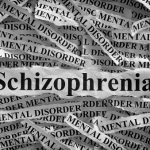 It is quite common to experience delusions in schizophrenia which are known as ‘positive symptoms’. The term ‘positive symptoms’ is used to describe something that is believed to be real to the patient but is actually false to everyone else. Delusions are false beliefs that patients actually hold. For example, in paranoid schizophrenia, a common delusion is that someone, or something, is plotting against the patient or their family. Although this is false, the patient believes there is a real threat to their lives, so they become consumed by this perceived threat.
It is quite common to experience delusions in schizophrenia which are known as ‘positive symptoms’. The term ‘positive symptoms’ is used to describe something that is believed to be real to the patient but is actually false to everyone else. Delusions are false beliefs that patients actually hold. For example, in paranoid schizophrenia, a common delusion is that someone, or something, is plotting against the patient or their family. Although this is false, the patient believes there is a real threat to their lives, so they become consumed by this perceived threat.
Positive symptoms are more commonly seen in the early stages of schizophrenia and can be provoked or triggered by stressful situations such as a breakup or illness diagnosis. Positive symptoms are also seen as “madness” by the general public. This is because these symptoms evoke fear or anxiety in other people and are often negatively portrayed through media outlets. Unfortunately, these false portrayals foster negative attitude towards schizophrenics even though it is known that these patients do not pose any risk of harm to others. If anything, patients are often more harmful to themselves as opposed to the general public as they embark on risky behaviors and neglect personal care.
Advertisement
There are four types of delusions:
Bizarre delusions: Considered to be extremely odd and highly implausible. They can also be seen as inappropriate. An example of a bizarre delusion would be believing in aliens.
Non-bizarre delusions: These delusions are theoretically possible, but still very unlikely. For example, the patient may believe they are secretly being video-tapped.
Mood-congruent delusions: These delusions are believed to stem from a person’s mood. For example, an extremely depressed patient may believe they are being watched by strangers.
Mood-neutral delusions: This is a delusion that isn’t related to mood. An example of this is the belief that your neighbor can implant thoughts into your head.
Common types of delusions in schizophrenia
Persecutory: This is the most common type of delusion in which a patient feels they are being targeted by someone or something. Patients may feel they are being tracked, harmed, poisoned, or even blocked from pursuing their goals. Examples of persecution include being followed by the FBI or Mafia, or being haunted by evil spirits. These delusions can make the patient angry or even violent.
Referential: Commonly seen in paranoid schizophrenics, this refers to an egocentric interpretation of information. In this type of delusion, the patient feels that all gestures or expressions are geared towards them. They may feel they are the focus of song lyrics or even news reports.
Grandiose: In this type of delusion, the patient feels that they are the most important person. They may imagine themselves as famous or always being in high demand. They may ask to be referred to by their higher title such as Your Majesty.
Religious: Patients feel they have a special connection with God. They feel God has put them on a special mission and they may even believe that they have special powers. In some cases, patients may actually believe that they are God.
Somatic: This is an obsessive preoccupation with one’s body. Patients believe they are suffering from a physical condition such as a tumor even when they are not. In majority of cases, their illness is often caused by a medical mystery. For example, a famous case involved a woman who believed her stomach pain was a result of a snake in her abdomen.
Control: This is the belief that an outside force is trying to control a person’s thoughts or actions. Patients believe their minds have been taken over by someone or something else and that they are being controlled by this other thing. Patients may also feel that their bodies are being manipulated by something else and that they do not have any personal control over their thoughts or movements.
Advertisement
Erotomanic delusions: Patient believes that someone, most likely someone famous, is romantically or sexually involved with them.
Causes of delusions in schizophrenia
 There are numerous causes of delusions in schizophrenia. Some causes stem from the mental illness itself, while others are external causes. Causes of delusions in schizophrenia include alcohol, brain injury, cognitive impairment, depression, psychosis, sensory deficits, stress, trauma, certain cultural aspects, bullying, drug use, genetics, social isolation, side effect of medications, neurotransmitter dysfunction, personality disorders, and withdrawal.
There are numerous causes of delusions in schizophrenia. Some causes stem from the mental illness itself, while others are external causes. Causes of delusions in schizophrenia include alcohol, brain injury, cognitive impairment, depression, psychosis, sensory deficits, stress, trauma, certain cultural aspects, bullying, drug use, genetics, social isolation, side effect of medications, neurotransmitter dysfunction, personality disorders, and withdrawal.
Not all delusions require treatment, but if treatment is recommended it often involves antipsychotics or psychotherapy.
